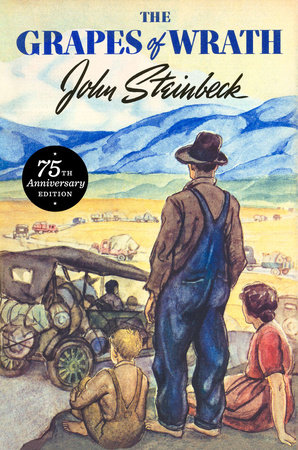Book Review: Grapes of Wrath by John Steinbeck

January 25, 2021
Classic literature is always riddled with such deep meaning and symbolism that even if the storyline is generally uninteresting, I still tend to enjoy the book. This is how Grapes of Wrath was for me; had it been written in a contemporary context, I doubt I’d have enjoyed it, especially because it is such a lengthy novel.
The story takes place during the Dust Bowl in the early 1930s and follows a family from Oklahoma and their journey to find new work in California after having been run off their land by crop failure and the bank. The novel introduces many well-rounded and dynamic characters, my favorite of which was former preacher Jim Casy. Casy offered philosophical and thought-provoking aspects to the story by always questioning authority and finding the deeper meaning in situations. He definitely seemed like an outlet for Steinbeck to voice his own thoughts within the story.
The structure of the book was really intriguing to me as well; every other chapter deviated from the story and portrayed the setting on a broader scale. For example, there was a chapter that followed a turtle and his walk across a road. In the next chapter, the main character finds the turtle and takes it with him on his journey back home. There were several chapters that described the socioeconomic setting with no mention of the characters at all; as a reader, it adds so much more to the story when you learn about rising class distinctions and how banks are justifying taking land from farmers, and then watching the characters struggle through their situation without knowing the full extent of the problem. It was incredibly insightful to me because the conflict is not introduced entirely from an outsider perspective that is just explaining it; instead, readers are able to establish connections with the characters that just cannot worry about the bigger picture of the conflict. They need to worry about what to eat at mealtime. They do not have the time to concern themselves with the fact that thousands and thousands of other families were being turned off their land, or that their situation is the result of debilitating class struggles. It is so much easier to understand the gravity of the situation when you can read it from two different perspectives.
The only problem I had while reading the book is that it is so incredibly slow. The plot never really progresses; it just drags on and on. The saving grace really was the deeper meaning about economic systems and how class struggles drive the life of the poor. For these reasons, I rate this book a seven out of ten.


